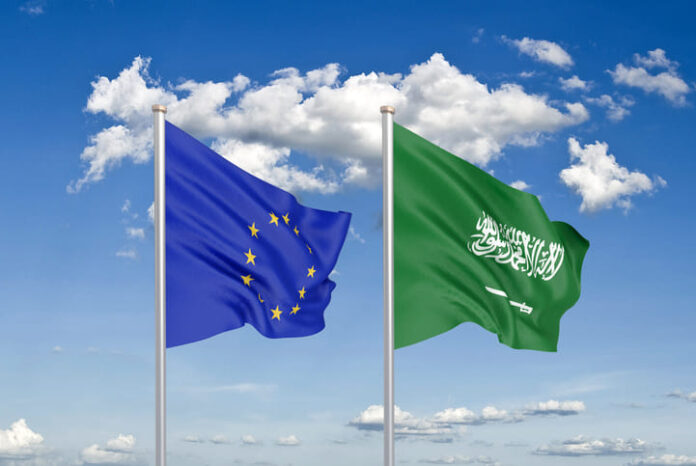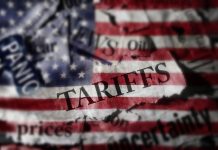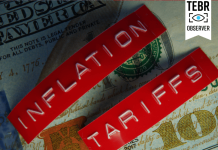As part of global efforts to combat climate change, the Kingdom of Saudi Arabia is advancing its green agenda, aiming for net-zero carbon emissions by 2060 and reducing CO₂ emissions by 278 million tons annually by 2030, using 2019 as a baseline year. The PIF plays a critical role in supporting the Kingdom’s green initiatives by accelerating economic diversification and fostering sustainable sectors.
Understanding PIF’s Green Finance Framework
To fulfill Saudi Arabia’s green commitments, PIF has developed its Green Finance Framework, outlining strategies and roadmaps for advancing the Kingdom’s green agenda and detailing projects eligible for green financing in line with international standards.
Accompanying this framework is a Second Party Opinion from DNV, an accredited international registrar and classification society, affirming that PIF’s Green Finance Framework aligns with the Green Bond Principles (2021) of the International Capital Market Association (ICMA) and the Green Loan Principles (2021) of the Loan Market Association (LMA).
For its edible green projects, the PIF has set a capital expenditure demand of $19.4 billion, of which $5.2 billion has been allotted as of June 2024. This pledge is in line with PIF’s continuous commitment to sustainable finance, which is explained in its second Allocation and Impact Report, which was just released.
Significant investments in green buildings, sustainable water management initiatives, and renewable energy are highlighted in the paper. The money allotted thus far has gone toward projects that satisfy certain eligibility requirements intended to support eco-friendly projects.
Numerous investment initiatives were launched to support various projects in renewable energy, healthcare, and technology sectors during the eighth Future Investment Initiative (FII), held in Riyadh from October 29 to November 1, 2024. Global leaders, EU investors, and innovators convened at the event to showcase a range of initiatives and engage in discussions on a variety of subjects.
Saudi Arabia and the EU Cooperation in the AI Sector
Saudi Arabia and the European Union are working together more and more in the field of artificial intelligence (AI) as both countries see how AI can spur innovation and economic progress.
Future cooperative projects, such as the creation of AI-powered renewable energy optimization systems, which seek to optimize energy efficiency and include sustainable technology, were emphasized during the Future Investment Initiative (FII) conference.
Predictive analytics and telemedicine solutions designed for underserved areas are two other noteworthy initiatives that use AI in healthcare to improve patient care and diagnosis. In order to solve the issues of food security in dry regions, both partners are also developing a smart agriculture platform that uses AI for precision farming and water resource management.
Additional PIF Investment Projects in Europe
It is noteworthy that the Saudi Arabian Public Investment Fund (PIF) has made large investments in sports in the past. The fund paid £300 million to purchase Newcastle United, an English football team, in 2021. The agreement said that 80% of the purchase money came from the fund, which at the time was in charge of assets worth £240 billion.
Fans of Newcastle United welcomed this news with enthusiasm. As one of the most prominent football clubs in England and Europe, with a rich history and traditions, Newcastle was in a prolonged crisis at the time of the acquisition.
Bridging Markets: The EU-Saudi Arabia Online Gambling Partnership
The increasing demand for online entertainment has sparked a fascinating collaboration between European gambling companies and Saudi audiences. These companies have tailored their offerings to align with the region’s cultural sensitivities and discreet consumer preferences, showcasing a bridge between two distinct markets.
EU-based operators utilize cutting-edge technology like virtual private networks (VPNs) to ensure user privacy and secure payment gateways compatible with Gulf financial systems. By integrating region-specific payment methods, such as e-wallets linked to local banks, these platforms enable seamless transactions for Saudi users. Additionally, interfaces designed in Arabic enhance accessibility, further personalizing the user experience.
Cultural adaptation is another key element of this collaboration. Many platforms feature games with themes inspired by Arabian traditions, such as Arabian Nights-themed slots and local motifs, to resonate with Saudi players. Live casino games are carefully designed to feature neutral environments, avoiding overt gambling imagery to respect regional norms.
Discretion in marketing is paramount, with promotions shared primarily through social media and word-of-mouth, appealing to younger, tech-savvy audiences. This delicate balance between privacy, cultural awareness, and technological innovation underscores the evolving relationship between European platforms and Saudi consumers. Interested readers can explore more in Arabic about the dynamics of online gambling in Saudi Arabia and the evolving landscape of this entertainment on Arabic-Casinos.org, a resource providing detailed insights into the availability and adaptation of online casinos for the region.
EU-Saudi Arabia Collaboration in E-Commerce
Saudi Arabia and the European Union’s e-commerce alliance is creating new opportunities for market expansion, technological transfer, and trade. Collaboration is facilitated by Saudi Arabia’s fast-expanding digital economy, which is bolstered by programs like Saudi Vision 2030.
In order to facilitate online company operations, the cooperation focuses on strengthening logistical networks, advancing cross-border payment systems, and exchanging regulatory framework experience. For instance, the EU is helping Saudi Arabia create sophisticated robotics and AI-powered warehouse systems that will speed up order delivery.
In order to improve accessibility for a variety of customer bases, joint partnerships are also being formed to provide multilingual e-commerce systems suited to Middle Eastern and European markets. In keeping with international environmental norms, Saudi Arabia is also collaborating with businesses in the EU to introduce eco-friendly packaging options in online retail.
In Conclusion
A dynamic interchange of knowledge, creativity, and investment across a range of industries, from artificial intelligence and e-commerce to renewable energy and entertainment, is reflected in the expanding collaboration between Saudi Arabia and the European Union.
These partnerships are tackling global issues, advancing technology, and changing industries.





































